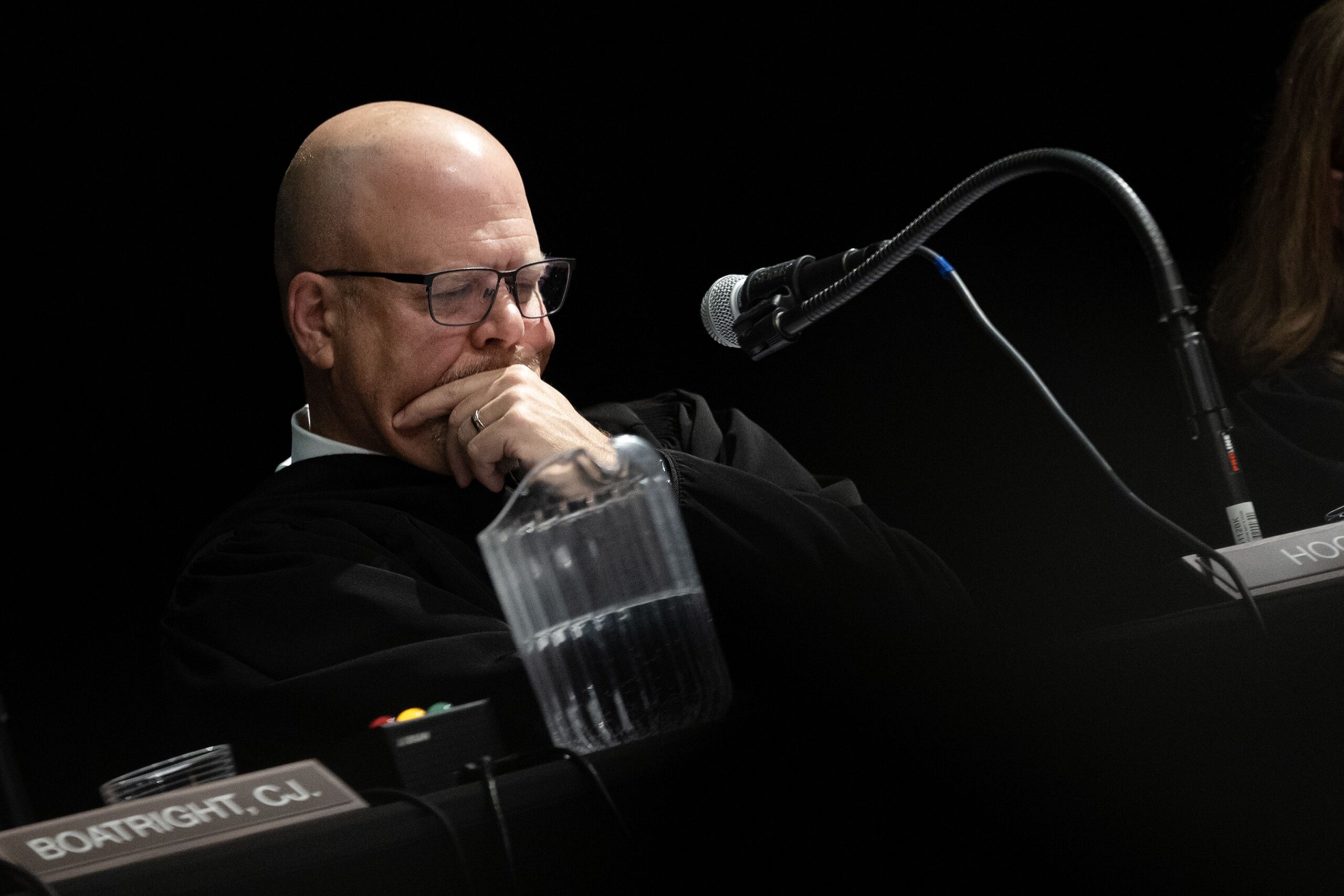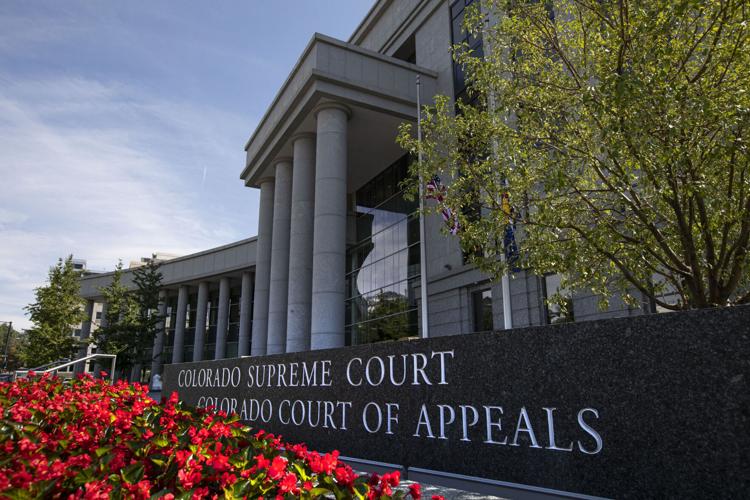cruel and unusual
-

Colorado justices splinter over approach to sentencing review
—
by
Members of the Colorado Supreme Court were divided on Monday about whether vehicular homicide stemming from intoxicated driving is “grave and serious” in every possible scenario, with two justices suggesting the court reconfigure its approach for determining the proportionality of criminal sentences. The Eighth Amendment’s prohibition on cruel and unusual punishment means sentences cannot be…
-

Colorado Supreme Court weighs whether lifetime sex offender registration amounts to ‘punishment’
—
by
Members of the Colorado Supreme Court appeared wary last week of deeming lifetime sex offender registration “punishment,” even as they heard about the inescapable consequences for a person’s liberty and privacy. Under Colorado law, “sexually violent predators” are subject to lifetime sex offender registration. To qualify, they must be 18 years or older, convicted of certain offenses,…
-

Colorado justices toy with test for reviewing extreme sentences for unconstitutionality
—
by
The Colorado Supreme Court heard arguments on Monday about whether a woman’s 29-year prison sentence for causing a fatal drunk driving accident was constitutionally excessive, but also considered tinkering with the procedure for how judges approach claims of “gross disproportionality” in sentencing. The Eighth Amendment’s prohibition on cruel and unusual punishment means sentences cannot be…
-

Colorado justices issue revised opinion in Robert Ray appeal, addressing life without parole sentence
—
by
The Colorado Supreme Court issued a modified decision last week in the appeal of former death row inmate Robert Keith Ray, addressing and rejecting his arguments about the constitutionality of his life sentence. Arapahoe County jurors convicted Ray for the 2005 slayings of Javad Marshall-Fields and Vivian Wolfe. He received a death sentence and remained…
-

Appeals judge decries inability for defendant to challenge his ‘three-strikes’ sentence
—
by
A member of Colorado’s second-highest court on Thursday registered his discomfort with a defendant’s inability to challenge his lengthy prison sentence that was a product of the state’s “three strikes” law. Obdulio Arvelo is serving 48 years in prison for a 2011 theft-related conviction. The sentence resulted from Arvelo’s designation as a “habitual criminal,” meaning…
-
10th Circuit underscores most lawsuits against federal officials are ‘dead’
—
by
The federal appeals court based in Denver emphasized on Tuesday that lawsuits against federal officials who violate people’s constitutional rights are “all but dead” — thanks to the U.S. Supreme Court’s recent decisions. Lawsuits seeking money damages against federal employees for constitutional violations are known as a “Bivens remedy,” stemming from a 1971 Supreme Court…
-
Colorado Supreme Court to examine whether portion of anti-SLAPP law is unconstitutional
—
by
The Colorado Supreme Court announced on Monday that it will address whether lawmakers inadvertently violated the state constitution by creating a unique pathway for appeals under a law designed to shield First Amendment conduct from lawsuits. At least three of the court’s seven members must agree to hear a case on appeal. The justices also accepted…
-
Federal judge says jury not influenced by incarcerated plaintiff’s appearance in shackles
—
by
A federal judge last month rejected an incarcerated plaintiff’s request for a new civil trial in his constitutional rights lawsuit, concluding the jury was not influenced by the man’s appearance in shackles at trial. This summer, Dean Carbajal received a jury trial on his claim that Colorado Department of Corrections employees failed to protect him…
-
Colorado justices skeptical of opening door to resentencing defendants under ‘3 strikes’ law
—
by
Members of the Colorado Supreme Court gave an icy reception on Tuesday to the idea that defendants convicted decades ago and serving lengthy sentences under the state’s “three strikes” law should have the opportunity to argue their punishments are grossly disproportionate under current standards. Although Colorado’s Habitual Criminal Act has undergone changes since its enactment…
-
Colorado justices decline to find life sentences unconstitutional for non-triggermen
—
by
A life sentence without parole does not violate the constitutional prohibition on cruel and unusual punishment for defendants who did not kill the victim personally, the Colorado Supreme Court ruled on Monday. Prior to 2021, life without parole was the punishment for those convicted of felony murder. A defendant is guilty of felony murder if…





